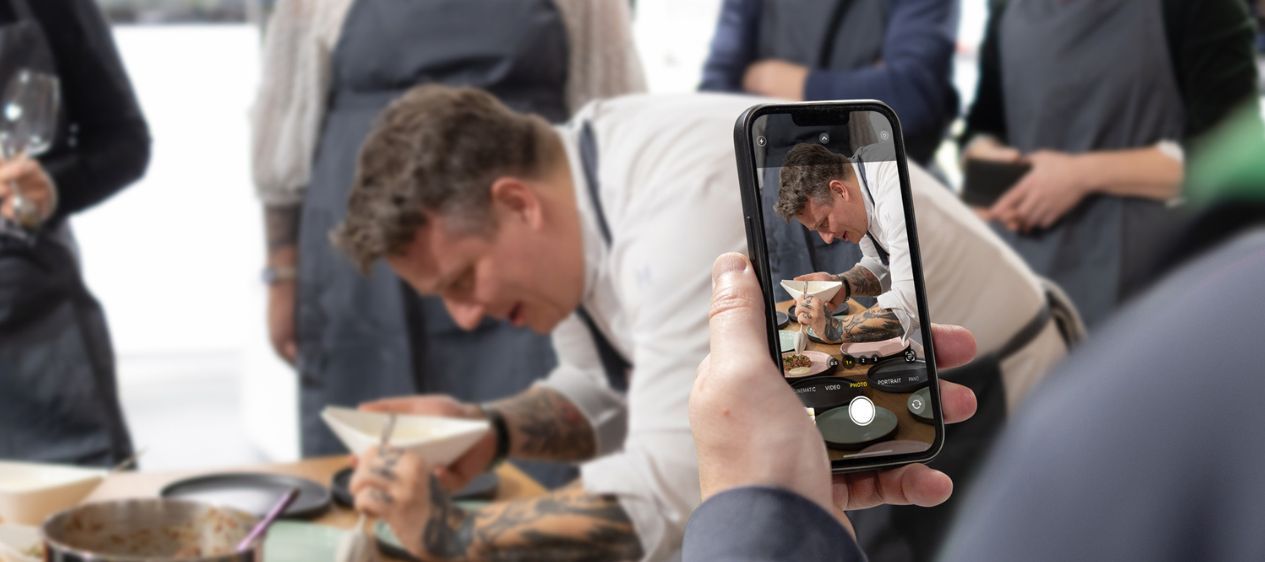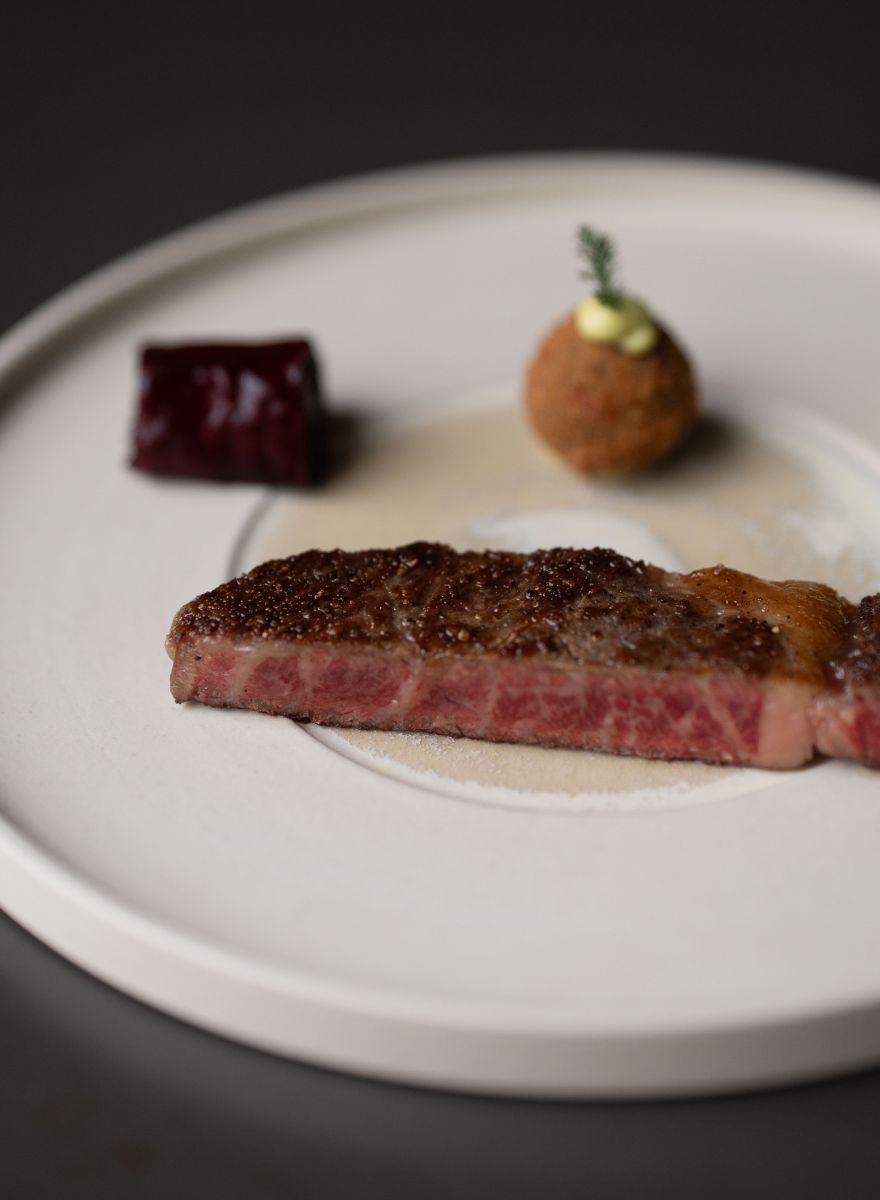The modern hospitality professional = A public figure?
A successful hospitality professional today is no longer just a master of the kitchen and flavors, but also a communicator, influencer, and the face of their brand. Is this the future of the profession—or simply a sign of the times, with increasing demands for visibility, presence, and constant public attention?
We asked two media-exposed JRE-Slovenia chefs to share their thoughts on this topic.
You’re not just a chef—you’re also the face of your restaurant and a strong personal brand. How important do you think media presence is for a modern chef’s success today?
Jorg Zupan, Aftr: Success primarily depends on hard work, creativity, and presence. Media exposure comes second. This is especially true in Ljubljana, where the hospitality scene is saturated and you have to constantly remind people of yourself and your work. Instagram plays a major role—I'd say it accounts for a good 50%. Then there's word of mouth, if I can put it that way, which makes up about 30%. The remaining 20% comes from occasional appearances on TV, radio… and even at events like Odprta Kuhna, to be completely honest.
Bine Volčič, Posestvo Monstera: Of course, being present in the media has many advantages, but it also comes with a great deal of responsibility, so the story isn't as simple as it might seem. Until recently, chefs worked mostly in the background. We wanted attention—we wanted to step in front of the guests, first physically in the restaurant, and later also in the public eye and the media.
So, is media presence essential for a modern chef’s success? Yes and no.
It definitely makes things easier, especially when you're launching a new project, if people (guests, customers, clients...) already know who you are—ideally in a positive light, as a trusted professional who delivers great value for money.
But once you reach a certain level of recognition, you need to constantly protect your reputation—not just professionally, but also in your private life. Appearing in the media makes you a part of your guests’ lives in a way, and that means living with more self-discipline. That’s the “heavier” side of visibility, something you really need to be aware of from the start.
Only genuine situations, ideas, and thoughts that come directly from you can truly build a personal brand that becomes something marketable.
Posestvo Monstera


Instagram, media, TV—do they help your work or make it harder at times?
Bine Volčič, Posestvo Monstera: Being present in the media is essential if you want to stay relevant and top of mind when people are deciding where to eat. But what often gets overlooked is that chefs aren’t just influencers—we’re still very much hands-on craftsmen.
We’re service providers who manage everything from sourcing ingredients and maintaining supplier relationships, to preparing dishes, leading kitchen teams, staying on top of trends through continuous learning, being present in the dining room, and running parallel projects.
Now add to that the ongoing effort of being active on social media—it drains valuable time and energy, and yes, it absolutely makes our work more demanding.
But we also understand that outsourcing content creation usually doesn’t work. External providers can only churn out generic content that blends into the sea of sameness. Only real situations, thoughts, and ideas—shared directly by the chef—can build a truly authentic personal brand that can later be marketed.
Jorg Zupan, Aftr: And that's exactly the point I mentioned above… Yes, media work is useful and necessary, but every show, ad, or interview takes time away from the kitchen—which is just as important. It all comes down to making essential time compromises. Still, you need to maintain balance.
Start with yourself, not your followers. Focus on your knowledge and your craft—success will follow naturally.
Aftr
What advice would you give to someone entering gastronomy and wanting to build a recognizable personal brand—where should they begin?
Bine Volčič, Posestvo Monstera: Let me illustrate this with the example of a well-developed culinary brand—my former chef Gregor Jelnikar. He joined us at Monstera Bistro in 2018 with a strong desire to learn. Through diligent work, he gained tremendous experience, took on more and more responsibility, and really grew into the role. When the opportunity came during COVID to lead a team, he didn’t hesitate—he stepped up, first under my mentorship and later by launching his own story with Georgie Bistro.
From there, it’s crucial for a chef to connect with the professional community—to be seen and recognized by industry peers (e.g., in specialized magazines, culinary platforms, etc.). From that base, they can begin sharing their philosophy at professional events—workshops, panels, and so on—where they are mentioned by full name.
This exposure naturally leads to broader projects, interviews in mainstream media, and growing followings on social platforms.
But of course, you also have to successfully run your core business. Altogether, this is much more than just a regular job. You need to ask yourself what you’re willing to sacrifice, because time and energy are limited, and in the first five years, you’ll likely have to give up quite a lot.
Family life and hobbies often take the biggest hit. That’s why it’s a good idea not to rush things—avoid burning out too soon. A solid 10-year journey toward recognition is a much more sustainable path to success than becoming an “instant star” that burns bright but fades just as quickly.
Jorg Zupan, Aftr: Start with yourself, not your “followers.” Focus on your knowledge and your craft—if you grow in those areas, success will follow naturally. The more someone invests in and sacrifices for their career and goals, the more it will pay off in the end. Of course, it's important to make the right decisions, but at the same time, not be afraid of making mistakes. Most importantly, have patience. Nothing happens overnight.


